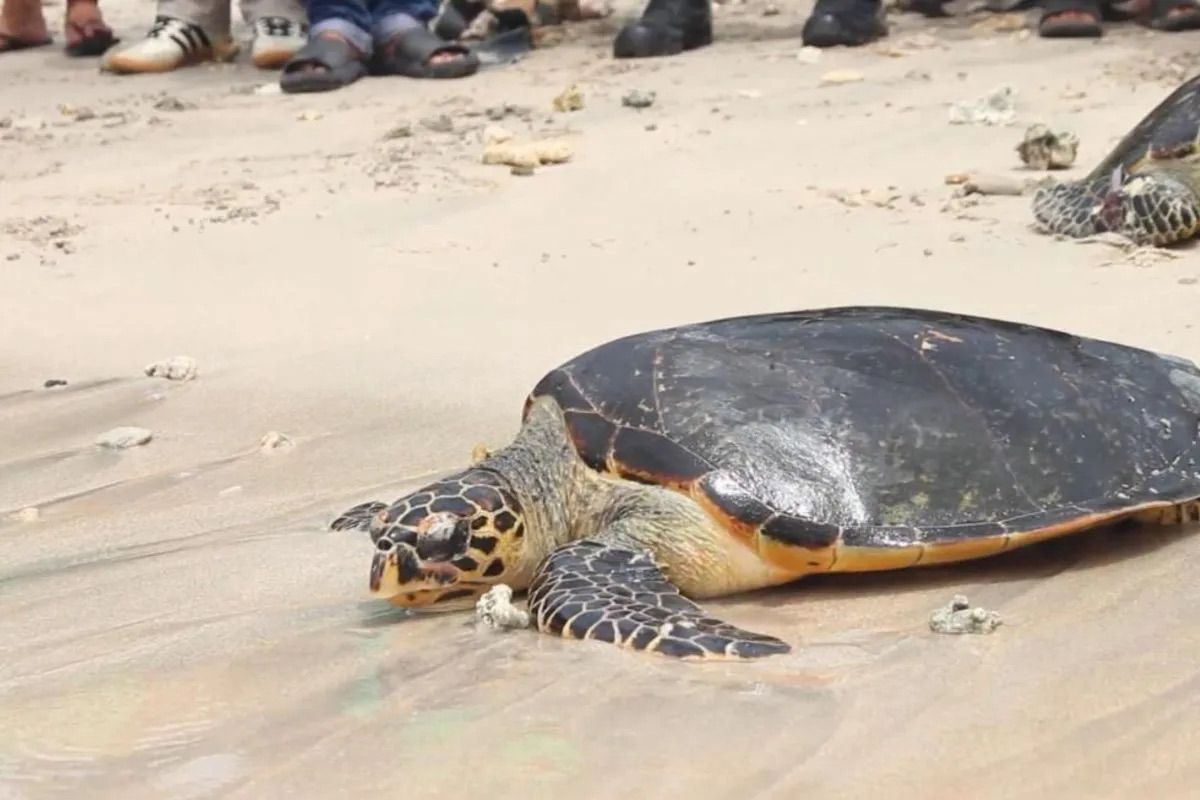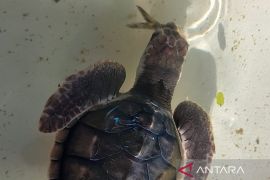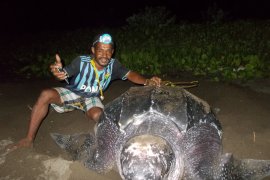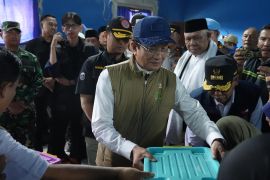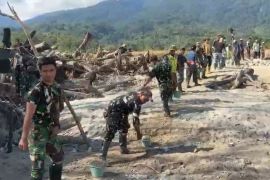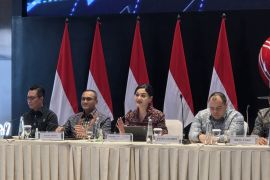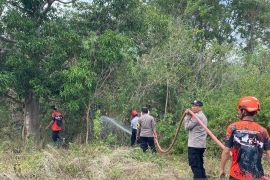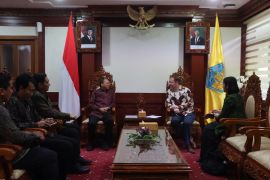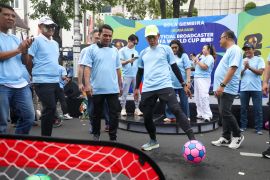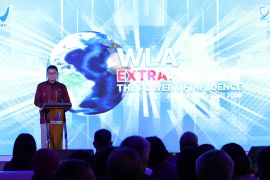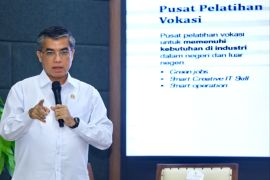“Multi-stakeholder collaboration is crucial for the protection of sea turtles and cetaceans,” director general of marine management at the KKP, Koswara, said in a written statement received in Jakarta on Wednesday.
He informed that the ministry recently held a public consultation on the drafting of the 2025–2029 National Action Plan (RAN) for the Conservation of Sea Turtles and Cetaceans, which involved a wide range of relevant stakeholders.
The consultation brought together WWF Indonesia, the Nature Conservation Foundation of Nusantara (YKAN), representatives from central and regional governments, academics, researchers from the National Research and Innovation Agency (BRIN), and civil society organizations.
The consultation resulted in important suggestions, including creating centers of excellence (CoEs) for sea turtle conservation in three areas, training for responding to stranded marine mammals, and devising guidelines to lessen the effects of coastal and offshore activities on cetaceans.
“We hope this RAN document will not remain a plan on paper but will serve as a practical reference for all parties to work together in protecting sea turtles and cetaceans across Indonesian waters,” Koswara said.
He added that the consultation addressed several critical issues, including the current status of sea turtle and cetacean populations, challenges faced in managing key habitats, and the direction of policy and protection strategies amid increasing human activity and climate change.
“One of the key sessions was the discussion of the action matrix, which outlines objectives, indicators, priority locations, and implementing stakeholders,” he informed.
Meanwhile, director of species and genetic conservation at the Directorate General of Marine Management, Sarmintohadi, stressed the value of broad-based support in formulating the RAN.
He emphasized its role as a strategic guide for the protection and sustainable management of sea turtles and cetaceans in Indonesia.
He noted that these species carry not only ecological significance but also deep cultural and social value for coastal communities.
“As such, the drafting of this action plan is a concrete step by the KKP to support long-term marine biodiversity conservation,” Sarmintohadi said.
“This document is expected to serve as a key reference for an integrated and sustainable approach to protecting endangered marine species.”
Ranny R. Yuneni, a representative from WWF Indonesia, stressed the importance of using current data and science-based approaches to conserve marine animals.
She said that effective protection must combine habitat conservation, local institutional strengthening, law enforcement, and the use of technology to mitigate threats to sea turtle and cetacean populations.
Minister of Marine Affairs and Fisheries, Sakti Wahyu Trenggono, earlier reaffirmed the ministry’s commitment to supporting global biodiversity targets.
The commitment includes strengthening marine conservation and the protection of marine species, in line with the blue economy principle, which balances ecological sustainability and community welfare.
Related news: Sea turtle conservation action plan needs scientific data support: KKP
Related news: ATSEA-2 Project: Indonesia endorses MPA supporting sea sustainability
Translator: Harianto, Azis Kurmala
Editor: Primayanti
Copyright © ANTARA 2025
